CIOs grapple with growing workload

The ever-expanding workload and mounting expectations of the healthcare CIO have many dimensions. The most obvious are volume and complexity.
In what has been dubbed a "post-EHR era," the demands from CIOs have not abated, but rather become more numerous and more varied.
Now that many EHR systems have deployed, there is the even more difficult work to be done.
"I believe we are in a post-EHR world right now," Glenn Tobin from The Advisory Board Company said. "That doesn't mean EHRs are not important. But that does mean that the original promise for which EHRs were rightly pushed out – we're beyond that. Now we're trying to find the next layer of information systems that's going to tie it all together."
It's the 'tying it all together' that will add to the growing and increasingly intricate work of the CIO.
Deriving insights from all the data being generated, health information exchange, creating and improving accountable care organizations, getting arms around population health, building data warehouses and squeezing time out of existing processes are just a sampling of the projects on the CIO agenda. Lest we forget, there's also interoperability.
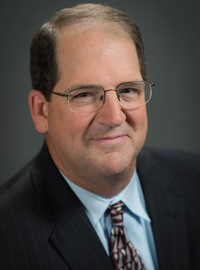 A critical piece of CHIME CEO Russell Branzell's job is to meet and talk with CIOs across the country to hear what's on their minds, gauge how things are going. Having been a CIO himself, he is attuned to their concerns.
A critical piece of CHIME CEO Russell Branzell's job is to meet and talk with CIOs across the country to hear what's on their minds, gauge how things are going. Having been a CIO himself, he is attuned to their concerns.
"It's not getting any better; I think it can't get any worse," he said. "There's only so much that can be done in any given day."
It sounds exhausting.
"You know it is. I think it's starting to become the norm for society as a whole. Everybody just runs at a fever pitch all the time, whether it's in their personal lives or their professional lives. Because the norm is there's really not a slow period anymore in anyone's lives. I think that's very true for the healthcare professionals, and particularly the health IT professionals out there."
In New York, at Memorial Sloan Kettering Cancer Center, CIO Pat Skarulis is working out the knots of state regulations regarding narcotics, adding content to the data warehouse and developing systems to save time, just to name a few projects under way.
MSK has more than 3,000 servers.
"We do our own work, Skarulis said, noting that the build crew uses reporting tools to standardize the construction of the servers.
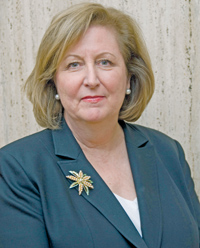 "If you went back four years ago," she said, "if the programmer wanted a server built, it might take two months, if you were lucky. Every year, we keep improving the process. We now have it down to 11 days. And for virtualized service, we can deliver it in four days."
"If you went back four years ago," she said, "if the programmer wanted a server built, it might take two months, if you were lucky. Every year, we keep improving the process. We now have it down to 11 days. And for virtualized service, we can deliver it in four days."
"It's amazing. We can standardize our own work, and we actually can take steps out of process or automate as many things as possible."
Skarulis also has the MSK data warehouse top of mind these days.
The warehouse contains clinical notes as well other unstructured data, such as the pathology radiology and operative reports. It also holds structured data.
"We're working at beginning to understand what's involved in genomics and other data, the other omics, that are part of that," Skarulis said. "Could be proteomics. We're not there on proteomics. It might be the next phase."
MSK is in the process of moving from having one discovery recovery site that could be used in the event of a disaster – "its warm, the data's there," Skarulis said – to building a second center.
"We will have two centers removed from each other, either of which could fail to the other one," she said.
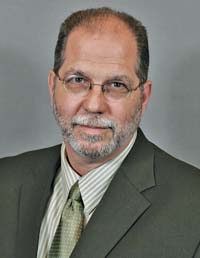 Charles Christian, CIO at St. Francis Hospital in Columbus, Ga., expects no workload relief anytime soon.
Charles Christian, CIO at St. Francis Hospital in Columbus, Ga., expects no workload relief anytime soon.
"No, I don't think so," he said, "because healthcare is changing at a blinding pace. The industry has come around to – for a variety of reasons – that IT is a business enabler."
Christian said he is being called to almost every operational meeting in his organization, not always to discuss technology.
"Sometimes, it's just a process discussion," he said. "There's no technological component to it."
However, Christian who, after 24 years, moved from Good Samaritan Hospital in Vincennes, Ind., to Atlanta for a new challenge and to be closer to his Southern roots, understands and appreciates that his colleagues are tapping into his operational experience.
Where some of the increased demand on his time comes from is that clinical and business staffs both are seeing the value of data.
"We're starting to see how useful the data actually is that is a product of all the systems that we put in," he said. "We are now starting to use the technology to create operational excellence, whereas before we were just putting in applications."
There is a demand for creating the enterprise view of the information rather than the very walled off, or segregated view of the data, he explained. "I think that taking that system view of the technology is creating a whole other level of stress on my time."
Christian's Dad, was journeyman, sheet-metal guy and welder, who worked for Goodyear for 43 years. When Christian – and also his brother – graduated from high school, each approached their Dad to help them get a job at the Goodyear plant.
His Dad refused.
"My Dad looked at me, and he said, 'no.' I raised you to use your mind not your back. If you want to screw up your life and work in industry, you do it yourself. And, so I went to college; so did my brother. But, I always wonder, who was the smarter of the two – me or my Dad? When my Dad was not at work, he was not at work. His job and his tools were in that plant. For me, when I'm not at work, I'm still at work. I'm at work or I'm lying in bed at night trying to go to sleep because I'm thinking about the next day, what's going on, trying to solve a problem that seems almost unsolvable. Or I'm on the phone or on email." he said.
"We can leverage every moment of free time with technology."
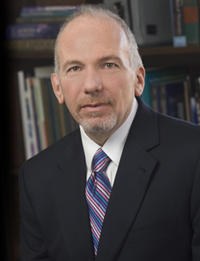 Ed Marx, CIO at Texas Health Resources has a litany of projects that would not have been on his radar just 10 years ago. Today, they add not just another piece to the workload, but also, because each is a piece of an intricate machine that all has to work together, they demand careful consideration and time.
Ed Marx, CIO at Texas Health Resources has a litany of projects that would not have been on his radar just 10 years ago. Today, they add not just another piece to the workload, but also, because each is a piece of an intricate machine that all has to work together, they demand careful consideration and time.
"Everything is becoming digitized," he said.
As example, he offers smart pumps.
"It was a separate thing that never touched IT," he said. "Now they're digitized; they're part of the electronic health record. So, everything is becoming digitized, whether it's by consumer demand, or just technology growth or evolution."
Also new business models have come on the scene: accountable care organizations, population health, fee-for-performance.
"All of these things require use of technology," Marx pointed out.
He alluded to a post-EHR era.
"The hard part is now, and it's all about optimization, he said. "So, we put in these systems, how do we optimize our investment, how do we make sure every thing is integrated. So, that requires additional effort. So that's part of how workload has increased."
Sue Schade, CIO at the University of Michigan Hospitals and Health Centers at University of Michigan Health System, has seen her workload expand year over year.
"No question that it's increased, and I think that's true throughout healthcare," she said. "It's fairly endless the number of initiatives – parallel initiatives that are happening; the number of meetings that we are in, the volume of email to try to manage," she said. "There's more and more all the time, and you hear people say, it's just endless."
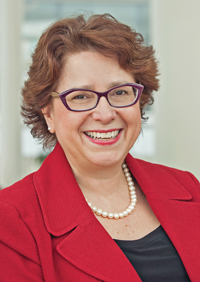 Schade, who was CIO at Brigham and Women's Hospital in Boston before moving to Michigan four years ago, has been named the 2014 CIO of the year by CHIME and HIMSS.
Schade, who was CIO at Brigham and Women's Hospital in Boston before moving to Michigan four years ago, has been named the 2014 CIO of the year by CHIME and HIMSS.
Shade talks with other CIOs, who have also observed the ever-increasing workload.
"One of the themes is the number of meetings," Schade said, "the number of initiatives, priorities." "Organizations aren't great at saying these are the top 10. They're all No. 1."
Just the sheer volume of work is among the concerns she's heard.
"In some respects, the tools just increase that because we are constantly on with email and mobile technology. You know, everyone kind of has to manage themselves. So, I don't know how that's going to change."

























